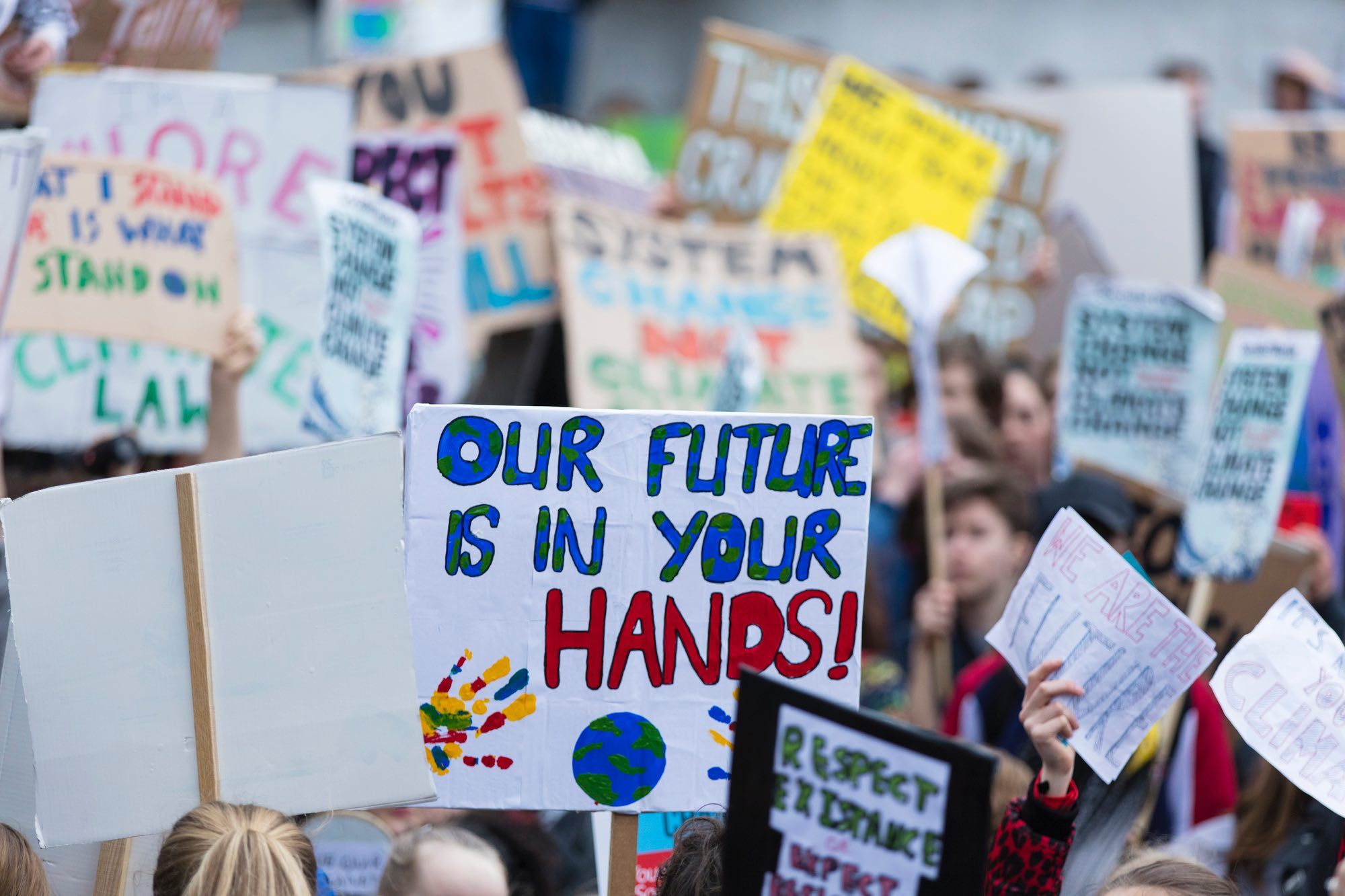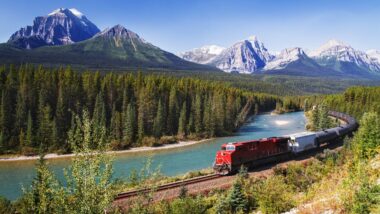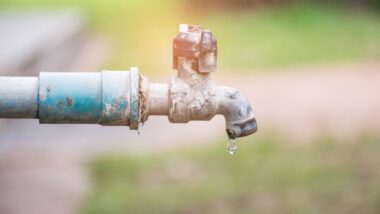Top Class Actions’s website and social media posts use affiliate links. If you make a purchase using such links, we may receive a commission, but it will not result in any additional charges to you. Please review our Affiliate Link Disclosure for more information.
When the era of climate change promises to impact the lives of Canadians nation-wide, from raging forest fires to persistent flooding, McGill University’s Richard Janda, esteemed law professor and president and co-founder of the news-breaking Myko app, explains why climate change needs to be aggressively tackled by our governments, and what we can do to restore our environment.
In an exclusive climate change interview with Top Class Actions, McGill University, Faculty of Law’s Richard Janda explains a pivotal Canadian climate change lawsuit, and reveals what consumers need to know to protect their families and Canada’s future.
The Case to Stop Climate Change
In 2019, 15 Canadian children and youths brought a suit against the federal government, alleging that Canada emits and contributes to emitting greenhouse gases (GHGs) that are incompatible with a stable climate. The plaintiffs argue that Canada’s actions violated their Charter rights, as well as the rights of present and future Canadian children.
The plaintiffs, who were later joined by their parents, allege that they have been and will continue to be exposed to climate change impacts that interfere with their physical and psychological wellbeing, and assert that they will bear a disproportionate share of the burden imposed by climate change due to their age.
So, can we sue the government for climate change?
Prof. Richard Janda answers that question with a firm “yes.”

“And Canada does have a history of climate change lawsuits,” he continues. The McGill law professor points out that a Quebec class action lawsuit was launched against the federal government back in 2018 over government “inaction” regarding climate change.
ENvironnement JEUnesse (ENJEU), a Quebec-based climate justice organization, filed the climate change class action lawsuit on behalf of all Quebeckers aged 35 and under.
According to ENJEU, the Canadian government’s behaviour infringes on a number of rights protected by the Canadian Charter of Rights and Freedoms and Quebec’s Charter of Human Rights and Freedoms.
Although the Superior Court of Québec refused to grant authorization of the climate change class action lawsuit, ENJEU recently appealed the judgement.
“There will likely be more and more climate change litigation,” notes Richard Janda.
For example, there was a successful climate change lawsuit in the Netherlands, ordering the State to reduce GHG emissions by 2020 by at least 25%, which inspired many environmental groups around the world to take action in their respective jurisdictions.
Government Responsibility and Climate Change
The reason Canadians can bring a suit against the government for climate change is because the government has certain responsibilities concerning environmental protection and its contribution to GHG emissions.
“However, the government argued that Canada’s contribution to GHG emissions is relatively low,” the McGill law professor reflected, referencing the Canadian climate change lawsuit. “The counter-argument to that is: Every country should do its part.”
“If litigation is undertaken in many jurisdictions, it sort of counters this argument that Canada shouldn’t be held accountable for its ‘minor’ contribution to climate change. This seems to be the strategy of the litigants: ‘We’re holding this government accountable for its part,’ and this is a valid point.”
For example, under the Paris Agreement, Canada committed to reducing its GHG emissions by 30% below 2005 levels by 2030. Despite Canada’s commitment under the accord, emissions in 2018 were almost equal to 2005 emissions.
The fact that the government committed to reducing GHG emissions shows that the federal government is aware of its climate change responsibilities, notes Prof. Janda.
Charter Rights and Climate Change
Among the government’s climate change responsibilities are the Charter rights, namely s.7, which guarantees the right to life, liberty and security of the person.
“It’s not that difficult to see how climate change, left unabated, interferes with the right to life and security of the person, as well as liberty,” the McGill University professor explains. “Take the fires on the West coast, for example. If you can’t move freely and are restricted from getting to your own house, this is an infringement of your liberty.”
Another Charter right that can be affected by climate change is the right to equality.
“There is the concept of ‘intergenerational discrimination,’ which refers to the fact that the world that awaits our children will likely be worse off,” according to Richard Janda. “We are creating a world with worse prospects for our descendants. This could infringe upon the Charter’s equality rights.”
Parallel claims can be made invoking provincially protected human rights as well.
“Environmental protection is shared between provincial and federal governments. It would therefore be difficult to make the climate change claim solely against the federal government.”
Canadian Provincial GHG Emissions
In 2018, the top five GHG emitters in Canada were Alberta, Ontario, Quebec, Saskatchewan and B.C. Together, these provinces released 91% of Canada’s national total GHG emissions.
Alberta’s emissions per capita are the 2nd highest in Canada: GHG emissions have increased 58% since 1990, the biggest culprit being oil and gas production.
Ontario’s emissions per capita are the 2nd lowest in Canada, but the province still significantly contributes to the nation’s climate change impact via GHG emissions. The largest emitting sectors in Ontario are transportation at 35% of emissions, heavy industries (including iron, steel, and chemicals) at 24%, and buildings (residential and commercial) at 22%.
Quebec, another top Canadian emitter, actually has the lowest GHG emissions per capita, at 52% below the Canadian average. The largest emitting sectors in Quebec match Ontario’s.
McGill University’s Richard Janda Explains Governments’ Role
The McGill law professor and environmental app innovator highlights that the government’s role in the climate change crisis is to “set the legal framework within which targets may be reached for reducing GHGs. Canada has a fairly long record of inadequate responses. Canada made undertakings reduce GHG emissions, but never put in place a real framework to reduce GHG emissions.”
For example, the government can institute a carbon tax, currently debated in the Supreme Court, therefore placing strong incentives for companies to reduce GHGs, notes Prof. Janda.
According to the professor, Canada has a relatively “loose and not very ambitious approach right now” to address GHG emission reductions, with its highly debated carbon tax in the balance.
“There is a gap between what the government knows they have to be doing and what they are actually doing,” which climate change litigants are attempting to remedy.
“Although there is a very important role for governments in the climate crisis, it’s not just the government that has this responsibility,” Richard Janda explains. “For example, fossil fuel companies are also responsible. There are corporate claims that could be made. We are also responsible.”
According to Prof. Janda, individual change plays an important role in ensuring the integrity of Canada’s environment. “The biggest individual change that could be 
What Can We Do to Reduce GHG Emissions and Help Stop Climate Change?
Although an economy-wide transformation, led by government initiatives is essential, Richard Janda notes, individual behavioural changes are also key. This is where Prof. Janda’s innovative Myko project comes into play.
Myko, the “brainchild” of a team of McGill University academics, entrepreneurs, and visionaries, is an app created to help incentivize individuals to transform certain non-environmentally friendly behavioural patterns. The app helps “nudge” users to make more informed choices to improve sustainability in a playful way, through scoring points when environmentally friendly choices are made.
The free app is available in the App store for iOS devices.
According to Prof. Janda, “we need to be able to see that we are collectively helping reduce GHG emissions, instead of feeling alone and that ‘small gestures’ don’t make a difference. Small gestures undertaken by many people make a difference.”
Indeed, climate change lawsuits against governments are important, but “we should look in the mirror,” says Richard Janda. “If we can produce social norms that change the way people relate to their own carbon footprint, and make people conscious of how their own footprint can be diminished- things will change.”
When asked what Canadians should focus on to reduce their carbon footprint, Richard Janda listed several ideas, among them:
- Use public transportation;
- Reduce meat consumption;
- Be conscious of how you heat your home and change it if you can; and
- Travel less.
It is in reference to this last suggestion that Prof. Janda leaves us to reflect on environmentally friendly habits that were somewhat forced upon us during the COVID-19 pandemic: GHG emissions have significantly been reduced during the coronavirus outbreak due to less travel and commercial restrictions, among others. “So what if we manage to preserve some of these habits post-COVID, like ‘staycations’ or working from home, and then we will all contribute to reducing GHG emissions in the long run.”
Do you think Canada should do more to prevent climate change? Tell us what you think in the comments below!
Read More Class Action Lawsuit & Settlement News:
Top COVID-19 Mental Health Risks | Dr. Gilles Chamberland Answers Your Questions
Long-Term Disability Lawyer | Insurance Claim Denial Help
Parents Join Canadian Teens’ Climate Change Lawsuit
Canada Roundup Glyphosate Cancer Class Action Lawsuit Investigation
ATTORNEY ADVERTISING
Top Class Actions is a Proud Member of the American Bar Association
LEGAL INFORMATION IS NOT LEGAL ADVICE
Top Class Actions Legal Statement
©2008 – 2024 Top Class Actions® LLC
Various Trademarks held by their respective owners
This website is not intended for viewing or usage by European Union citizens.

















